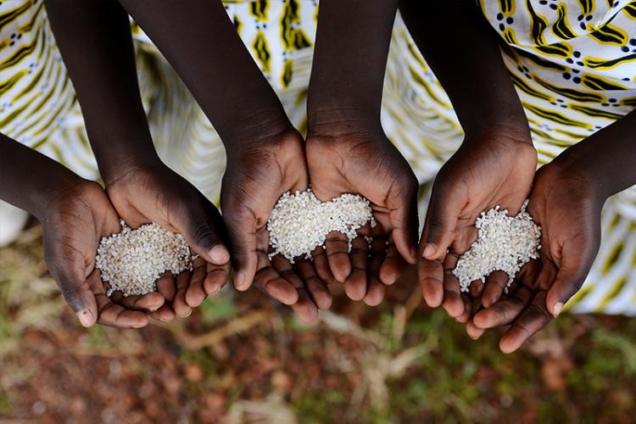The United Nations World Food Programme (WFP) and the United Nations Environment Programme (UNEP) have struck an agreement to improve global food and water security for millions of people worldwide.
The deal will also address the devastation caused by the climate catastrophe, as well as environmental degradation, biodiversity loss, and ecosystem destruction.
The agreement, signed in Nairobi by Cindy McCain, Executive Director of the World Food Programme, and Inger Andersen, Executive Director of the United Nations Environment Programme, strengthens collaboration on climate change adaptation, nature-friendly food systems, water resource management, and ecosystem restoration.
According to Cindy McCain, Executive Director of the World Food Programme, food and water go hand in hand, thus there is an urgent need to restore ecosystems and scale up climate adaptation initiatives to ensure future generations have the fundamental resources needed to grow enough food.
“Food and water go hand in hand: we urgently need to restore our ecosystems and scale up climate adaptation programs to ensure future generations have the basic resources needed to grow enough food,” says Cindy McCain, WFP’s Executive Director.
He goes on to say that the World Food Programme's worldwide footprint and operational size, together with UNEP's world-class scientific understanding, would assist governments, communities, and families on the frontlines of the climate disaster in better protecting themselves.
"Our partnership will reduce humanitarian needs and support long-term solutions to hunger,” he Cindy indicated.
Water security is directly related to food security. Water quality and quantity, whether excessive or insufficient, have an impact on food production, accessibility, availability, and utilization.
Droughts and floods are becoming more intense and frequent, hastening environmental deterioration, ecosystem loss, and, eventually, people's capacity to produce and acquire sufficient food.
According to UNEP Executive Director Inger Andersen, if the two organizations collaborate more closely, they could have a genuine, significant influence, improve climate mitigation and adaptation, and assist vulnerable populations in dealing with nature-induced conflicts and natural disasters.
"We can maintain healthy, productive, and resilient ecosystems. We can deliver on both our mandates and reduce the vicious cycle of humanitarian and environmental crises,” says Inger.
WFP and UNEP will collaborate with local communities, local and national governments, regional bodies, UN partners, and other stakeholders to improve vulnerable communities' food, water, and environmental security by matching data and science with the capacity to restore degraded ecosystems, build and scale climate adaptation actions, and support sustainable agricultural practices.
Latest Stories
-
Manchester United lose 3-0 at home to Bournemouth yet again
2 minutes -
CHAN 2024Q: ‘It’s still an open game’ – Didi on Ghana’s draw with Nigeria
10 minutes -
CHAN 2024Q: Ghana’s Black Galaxies held by Nigeria in first-leg tie
1 hour -
Dr Nduom hopeful defunct GN bank will be restored under Mahama administration
2 hours -
Bridget Bonnie celebrates NDC Victory, champions hope for women and youth
2 hours -
Shamima Muslim urges youth to lead Ghana’s renewal at 18Plus4NDC anniversary
3 hours -
Akufo-Addo condemns post-election violence, blames NDC
3 hours -
DAMC, Free Food Company, to distribute 10,000 packs of food to street kids
4 hours -
Kwame Boafo Akuffo: Court ruling on re-collation flawed
5 hours -
Samuel Yaw Adusei: The strategist behind NDC’s electoral security in Ashanti region
5 hours -
I’m confident posterity will judge my performance well – Akufo-Addo
5 hours -
Syria’s minorities seek security as country charts new future
5 hours -
Prof. Nana Aba Appiah Amfo re-appointed as Vice-Chancellor of the University of Ghana
6 hours -
German police probe market attack security and warnings
6 hours -
Grief and anger in Magdeburg after Christmas market attack
6 hours

